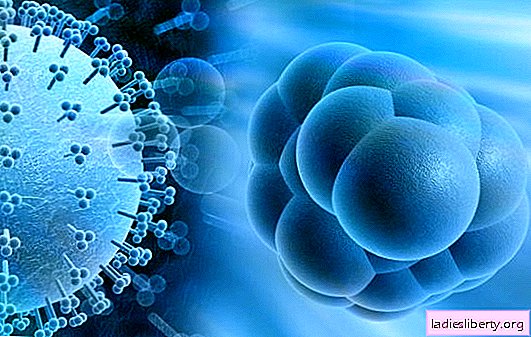
Genetically modified herpes virus cured 36% of patients with advanced stage melanoma. The final results were published in the Journal of Clinical Oncology. The virus will help save the lives of patients with malignant melanoma, which used to kill thousands of people in 2-3 months.
How does the new cure for melanoma work?
A number of manufacturers are experimenting with so-called "oncolytic viruses" that specifically infect and destroy cancer cells. Herpes simplex virus type 1 has been used for about 10 years for experimental purposes.
The herpes virus has been genetically modified to potentially infect and destroy tumor cells.
To enhance the effect, he was given the GM-CSF gene, which is designed to enhance the immune response against tumor cells.
The modified virus was last studied in a British study in which 439 patients with stage IIIb, IIIc or IV melanoma participated. Patients were divided into 2 groups.
In 1 group of patients, T-VEC was injected into the tumor every 2 weeks. In group 2, herpes virus was administered subcutaneously to patients in the first 14 days. The total duration of therapy was limited to 18 months in both groups.
Intermediate results were repeatedly discussed at the annual congress of the American Society of Clinical Oncology. The positive effect of treatment with herpes viruses has been known since 2015. Patients experienced complete or partial remission for at least 6 months.
The goal was reached by 36% of patients who took the new drug, according to scientists. The difference was significant.
The probability of recovery was almost 9 times higher when patients received a modified herpes virus.
Herpes treatment is combined with other immunotherapeutic drugs approved in recent years - ipilimumab or nivolumab. However, clinical data on these combined therapies are not yet available.
The modified herpes simplex virus type 1 will be the first oncolytic virus of the "Western world". In 2003, the drug "Genditsin" was approved, which is prescribed for patients with tumors of the ear, throat and nose.
How has the survival of patients with melanoma?
Ten years ago, the prognosis of survival after chemotherapy was usually only a few months. In recent years, much has been done in the treatment of melanoma.
There are various methods of treatment in which patients live for many years without metastases. The quality of life usually does not suffer if the patient adheres to the recommendations.
A new form of therapy is based on a genetically modified, cancer-dissolving virus that is introduced into secondary tumors. The virus acts there locally, as well as in other parts of the body. According to studies, it increases survival by 5-20 years.
Does the virus only attack cancer cells?
The virus acts in the human body exclusively on cancerous tumors. Herpes is a widespread disease that does not cause serious long-term effects. This virus is recognized by the immune system as "normal."
However, it introduces information into immune cells that helps fight tumors. This leads to the destruction of cancer cells infected with the virus.
What danger is a modified virus?
Since it is a herpes virus, skin rashes and a slight burning sensation develop during treatment. In very rare cases, therapy leads to severe herpetic infection, inflammation of the meninges or brain.
The most common symptoms are pain, burning, tingling, or blistering. In some cases, eye pain, fever with a headache, vomiting, or epileptic seizures occur. Despite changes in the herpes virus, it is still sensitive to well-known and effective drugs.
Accidental infection of the virus is possible when interacting with a new drug and patient.
Contact persons - medical professionals, family members, individuals, and sexual partners - should avoid direct contact with the patient.
An infected person should not be contacted until 30 days after the introduction of the virus. Pregnant women, newborns, and immunocompromised people should not be exposed to contaminated objects. Whether a viral infection passes into breast milk is not yet known.











